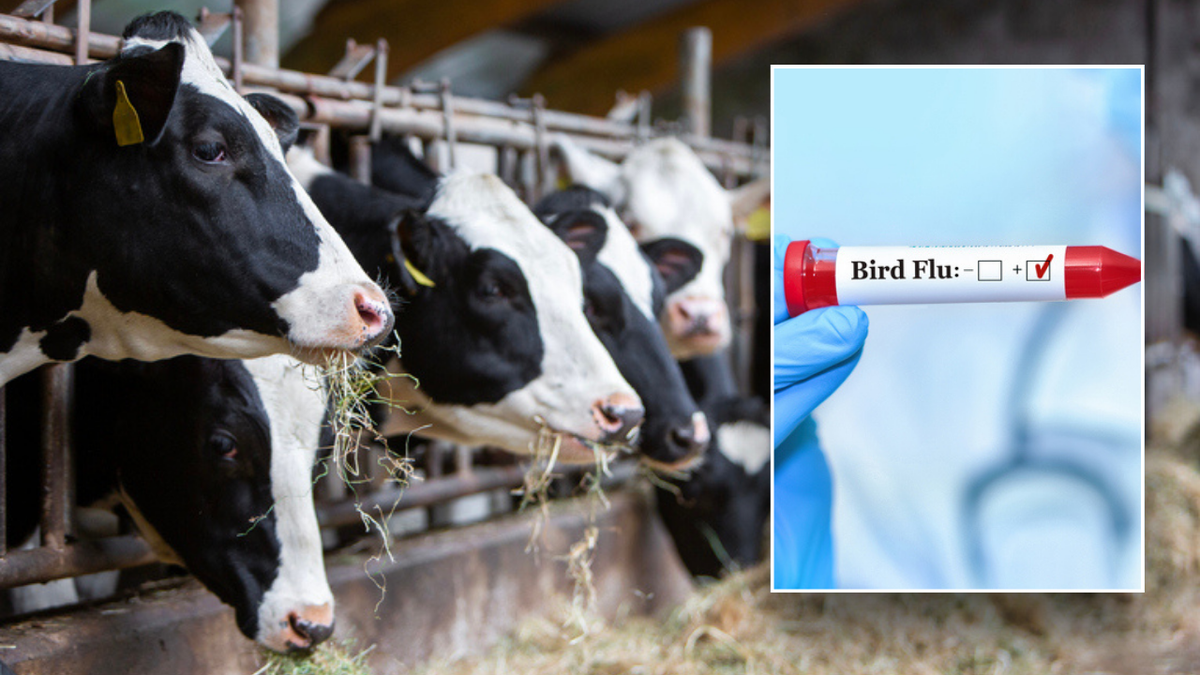

The patient in Louisiana who was hospitalized with severe bird flu illness was found to have a mutated version of the virus, the U.S. Centers for Disease Control and Prevention (CDC) announced last week.
The fact that the virus mutated within the patient suggests that it could potentially spread from human to human.
The CDC analyzed samples of the H5N1 virus that were collected from the patient, comparing its genomic sequences to those of infected dairy cows, wild birds, poultry and other animals, the agency stated.
BIRD FLU LEADS TO SEVERE HUMAN ILLNESS AND STATE OF EMERGENCY
"The analysis identified low frequency mutations in the hemagglutinin gene of a sample sequenced from the patient, which were not found in virus sequences from poultry samples collected on the patient’s property, suggesting the changes emerged in the patient after infection," the CDC said.

"While these low frequency changes are rare in humans, they have been reported in previous cases of A(H5N1) in other countries and most often during severe disease."
Based on the discovery of these genetic changes in the virus, health officials recommend performing "ongoing genomic surveillance" in people and animals, taking steps to contain bird flu outbreaks among dairy cattle and poultry, and taking steps to prevent transmission when exposed to infected animals or environments.
BIRD FLU CAUSES DEATHS OF CATS AND ZOO ANIMALS AS VIRUS SPREADS IN US
The CDC maintains that the risk to the general public is still low.
"The same mutations were not present in viral genomes sampled from the backyard birds that presumably infected the individual," Samuel Scarpino, director of AI and life sciences and professor of health sciences at Northeastern University in Boston, confirmed to Fox News Digital.

"Because the mutations were present in the human patient, but not the backyard birds, this suggests that the mutations arose during the course of that individual’s infection."
Dr. Marc Siegel, clinical professor of medicine at NYU Langone Health and Fox News senior medical analyst, told Fox News Digital, shared his thoughts on the significance of this finding.
"It is somewhat concerning that the H5N1 bird flu virus found in the Louisiana patient showed a mutation that allowed it to enter the upper airways more easily in this patient, but this mutation has been seen before," he told Fox News Digital.
The good news, the doctor noted, is that there have not been any reports of the Louisiana patient transmitting the virus to other humans.

"We know the mutations to look out for in terms of the potential to spread among humans" based on previous research, Siegel said.
"It is important that surveillance among domestic poultry and dairy cattle is extensive," he added.
Scarpino agreed that while the mutations are "concerning," they "likely do not represent an increased risk to the public."
"Similar events — mutations arising during infection that increase risk in humans — occurred with the individual who was infected with H5N1 from wild birds in Canada and have happened a number of times during previous H5N1 outbreaks outside the U.S. and Canada," he told Fox News Digital.

"To date, it does not appear as though the individual in Louisiana transmitted the infection to other people."
TO SIGN UP FOR OUR HEALTH NEWSLETTER
The doctor cautioned, however, that the more opportunities the virus has to infect people, the more likely similar mutations will occur and spark a "chain of transmission" in humans.
For more Health articles, visit www.foxnews.com/health
"Each human infection represents a spin of the epidemic roulette wheel," Scarpino said.
"We need to take active steps to eliminate H5N1 infections in agricultural populations and better understand why so many wild birds continue to be infected."


